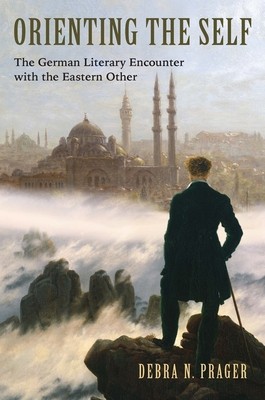
- We will send in 10–14 business days.
- Author: Debra N Prager
- Publisher: Camden House (NY)
- ISBN-10: 1571135944
- ISBN-13: 9781571135940
- Format: 15.2 x 22.9 x 2.2 cm, hardcover
- Language: English
- SAVE -10% with code: EXTRA
Reviews
Description
Follows the evolution of the Orient as a positive literary device in German literature and demonstrates how it was used to explore subjectivity and the possibility of wholeness.
For centuries, Europe's eastward gaze has been wary if not hostile. Medieval man envisaged grotesque beings at the world's edge and scanned the steppes and straits on the immediate horizon for the Asian or Arab hordes that might swarm across them. Through the Crusades, the early modern era, and the age of imperialism, Europeans regarded the Eastern subject as requiring both "discovery" and conquest. Conveniently, the "Oriental" came to represent fanaticism, terrorism, moral laxity, and inscrutability, among other stereotypes. The list of German literary works that reinforced negative clichés about the East is long, but Orienting the Self argues for the presence in the Germanliterary tradition of a powerful perception of the East as the scene of desire, fantasy, and fulfillment. It follows the evolution of the Orient as a literary device and demonstrates how it was used to explore subjectivity and the possibility of wholeness. The five works treated in this study - Parzival, Fortunatus, Effi Briest, Heinrich von Ofterdingen, and The Magic Mountain - are narratives of development in which the encounter with the East is central to the progression toward selfhood and the promise of fulfillment. Debra N. Prager is Associate Professor of German at Washington and Lee University.
EXTRA 10 % discount with code: EXTRA
The promotion ends in 20d.00:19:21
The discount code is valid when purchasing from 10 €. Discounts do not stack.
- Author: Debra N Prager
- Publisher: Camden House (NY)
- ISBN-10: 1571135944
- ISBN-13: 9781571135940
- Format: 15.2 x 22.9 x 2.2 cm, hardcover
- Language: English English
Follows the evolution of the Orient as a positive literary device in German literature and demonstrates how it was used to explore subjectivity and the possibility of wholeness.
For centuries, Europe's eastward gaze has been wary if not hostile. Medieval man envisaged grotesque beings at the world's edge and scanned the steppes and straits on the immediate horizon for the Asian or Arab hordes that might swarm across them. Through the Crusades, the early modern era, and the age of imperialism, Europeans regarded the Eastern subject as requiring both "discovery" and conquest. Conveniently, the "Oriental" came to represent fanaticism, terrorism, moral laxity, and inscrutability, among other stereotypes. The list of German literary works that reinforced negative clichés about the East is long, but Orienting the Self argues for the presence in the Germanliterary tradition of a powerful perception of the East as the scene of desire, fantasy, and fulfillment. It follows the evolution of the Orient as a literary device and demonstrates how it was used to explore subjectivity and the possibility of wholeness. The five works treated in this study - Parzival, Fortunatus, Effi Briest, Heinrich von Ofterdingen, and The Magic Mountain - are narratives of development in which the encounter with the East is central to the progression toward selfhood and the promise of fulfillment. Debra N. Prager is Associate Professor of German at Washington and Lee University.


Reviews